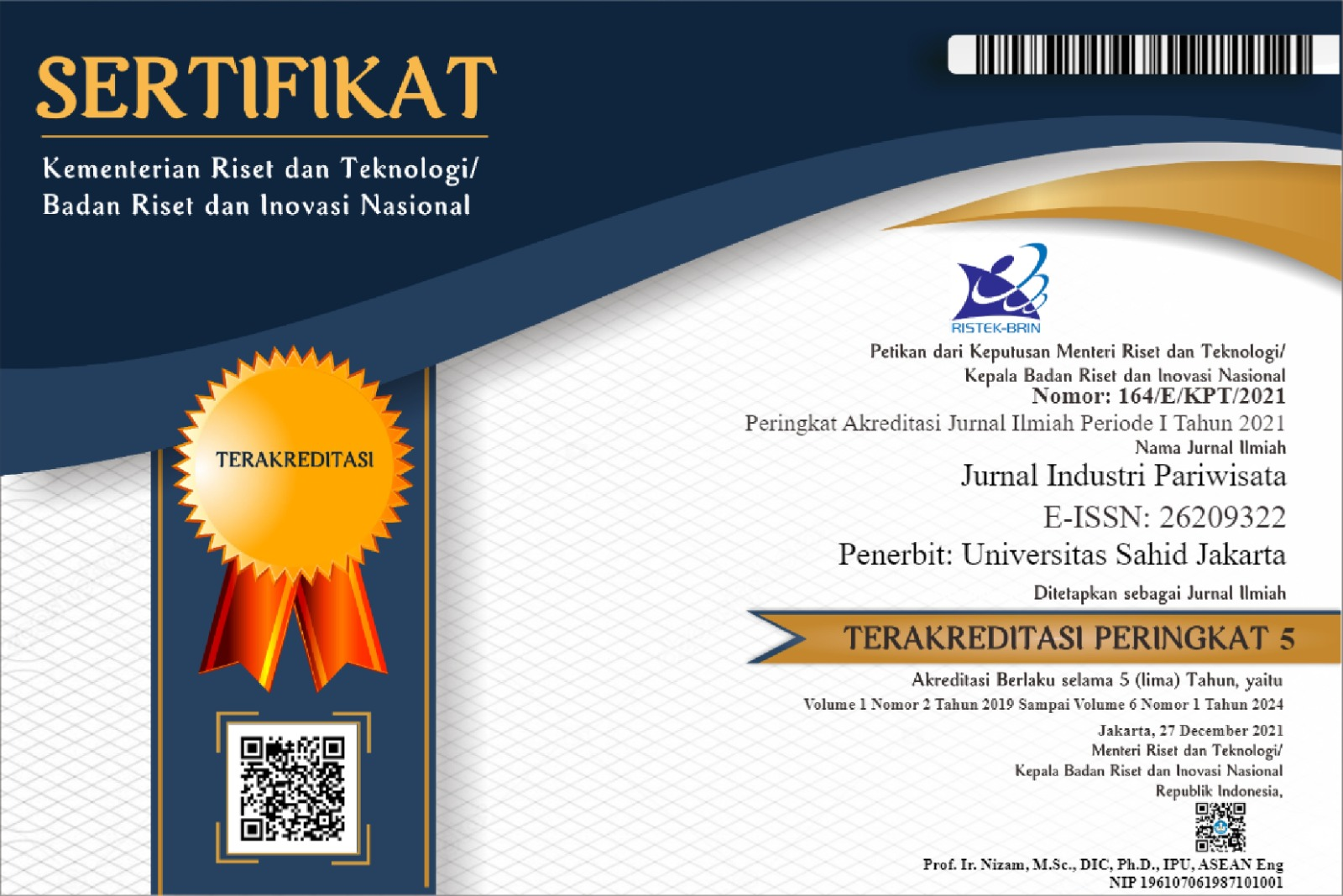Komparasi Pengaruh Reward dan Punishment Terhadap Motivasi Kerja
Keywords:
reward, punishment, motivasi kerja.Abstract
Perusahaan transportasi berbasis aplikasi online Gojek dan Grab memiliki perbedaan mendasar pada perlakuan terhadap mitra pengemudi, walaupun memiliki penawaran produk/jasa identik. Penelitian ini menganalisis komparasi pengaruh reward dan punishment terhadap motivasi kerja para pengemudi, berdasarkan keunikan insentif masing-masing perusahaan. Secara kuantitatif, dilakukan survei menggunakan kuesioner pada pengemudi Gojek dan Grab di Kota Makasar. Teknik analisis menggunakan regresi linier berganda dan uji beda. Hasil penelitian menunjukkan bahwa pemberian reward dan punishment berpengaruh signifikan secara simultan terhadap motivasi kerja driver transportasi berbasis aplikasi online. Secara komparatif, terdapat perbedaan pada dua perusahaan tersebut, di mana perusahaan Gojek memiliki sistem reward dan punishment yang lebih baik dalam mendorong motivasi pengemudi.References
Ahmad, I., Said, H., & Khan, F. (2013). Effect of Corporal Punishment On Students’
Motivation And Classroom Learning. Review of European Studies, 5(4), pp 130-134.
Amar, M. Y., Syariati, A., & Rahim, F. R. (2019). Enhancing Hotel Industry Performance
through Service Based Resources and Strategic Entrepreneurship (Case Study At
Hotel Industries In Indonesia). Academy of Entrepreneurship Journal.
Awaluddin, M. (2018). Penguatan Peran Lingkungan Kerja dan Budaya Organisasi dalam
Mengoptimalkan Kinerja Dosen Universitas Islam Negeri Alauddin Makassar melalui
Kepuasan Kerja. Jurnal Minds: Manajemen Ide dan Inspirasi, 5(1), pp 53-67.
Cameron, J., Banko, K. M., & Pierce, W. D. (2001). Pervasive Negative Effects of Rewards
on Intrinsic Motivation: The Myth Continues. Behavior Analyst, 24, pp 1-44.
Cameron, J., & Pierce, W. D. (1994). Reinforcement, Reward, and Intrinsic Motivation: A
MetaAnalysis. Review of Educational Research, 64(3), pp 363-423.
Carlsmith, K. M., Darley, J. M., & Robinson, P. H. (2002). Why Do We Punish? Deterrence
And Just Deserts As Motives For Punishment. Journal of Personality and Social
Psychology, 83(2), pp 284-299.
Eisenberger, R., Pierce, W. D., & Cameron, J. (1999). Effects of Reward on Intrinsic
Motivation. Psychological Bulletin, 125 (6), pp 677-691.
Fauzan, H., Humaira, C., & Wicaksono, A. T. S. (2019). Manajemen Sumberdaya Manusia
Bank Syariah: Dapatkah Meningkatkan Kinerja Karyawan Kontrak?. Jurnal Minds:
Manajemen Ide dan Inspirasi, 6(1), pp 77-95.
Griffin. (2014). Manajemen. Jakarta: Erlangga.
Hendijani, R., Bischak, D. P., Arvai, J., & Dugar, S. (2016). Intrinsic Motivation, External
Reward, and Their Effect on Overall Motivation And Performance. Human
Performance, 29, pp 251-274.
Holmås, T. H., Kjerstad, E., Lurås, H., & Straume, O. R. (2010). Does Monetary Punishment
Crowd Out Pro-Social Motivation? A Natural Experiment On Hospital Length Of Stay.
Journal of Economic Behavior and Organization, 75(2), pp 261-267.
Lunenburg, F. C. (2011). Expectancy Theory of Motivation : Motivating by Altering
Expectations. International Journal of Business Administration.
Mangkunegara. (2000). Manajemen Sumber Daya Manusia. Cetakan Pertama.
Bandung.
Murty, V. P., LaBar, K. S., & Alison Adcock, R. (2012). Threat of Punishment Motivates
Memory Encoding Via Amygdala, Not Midbrain, Interactions With The Medial
Temporal Lobe. Journal of Neuroscience, 32(26), pp 8969-8976.
Robbins, T. W., & Everitt, B. J. (1996). Neurobehavioural mechanisms of reward and
motivation. Current Opinion in Neurobiology.
Sule, T.E, & Saefullah, K. (2014). Pengantar Manajemen. Jakarta : Kencana.
Sanubari, F. T., & Amalia, S. (2019). Gambaran Kepuasan Kerja Pada Pengemudi Layanan
Jasa Transportasi Ojek Online. Cognicia, 7(1).
Issue
Section
Authors who publish with this journal agree to the following terms:
- Authors retain copyright and grant the journal right of first publication with the work simultaneously licensed under a Lisensi Creative Commons Atribusi-BerbagiSerupa 4.0 Internasional. that allows others to share the work with an acknowledgement of the works authorship and initial publication in this journal.
- Authors are able to enter into separate, additional contractual arrangements for the non-exclusive distribution of the journals published version of the work (e.g., post it to an institutional repository or publish it in a book), with an acknowledgement of its initial publication in this journal.
- Authors are permitted and encouraged to post their work online (e.g., in institutional repositories or on their website) prior to and during the submission process, as it can lead to productive exchanges, as well as earlier and greater citation of published work (See The Effect of Open Access).










